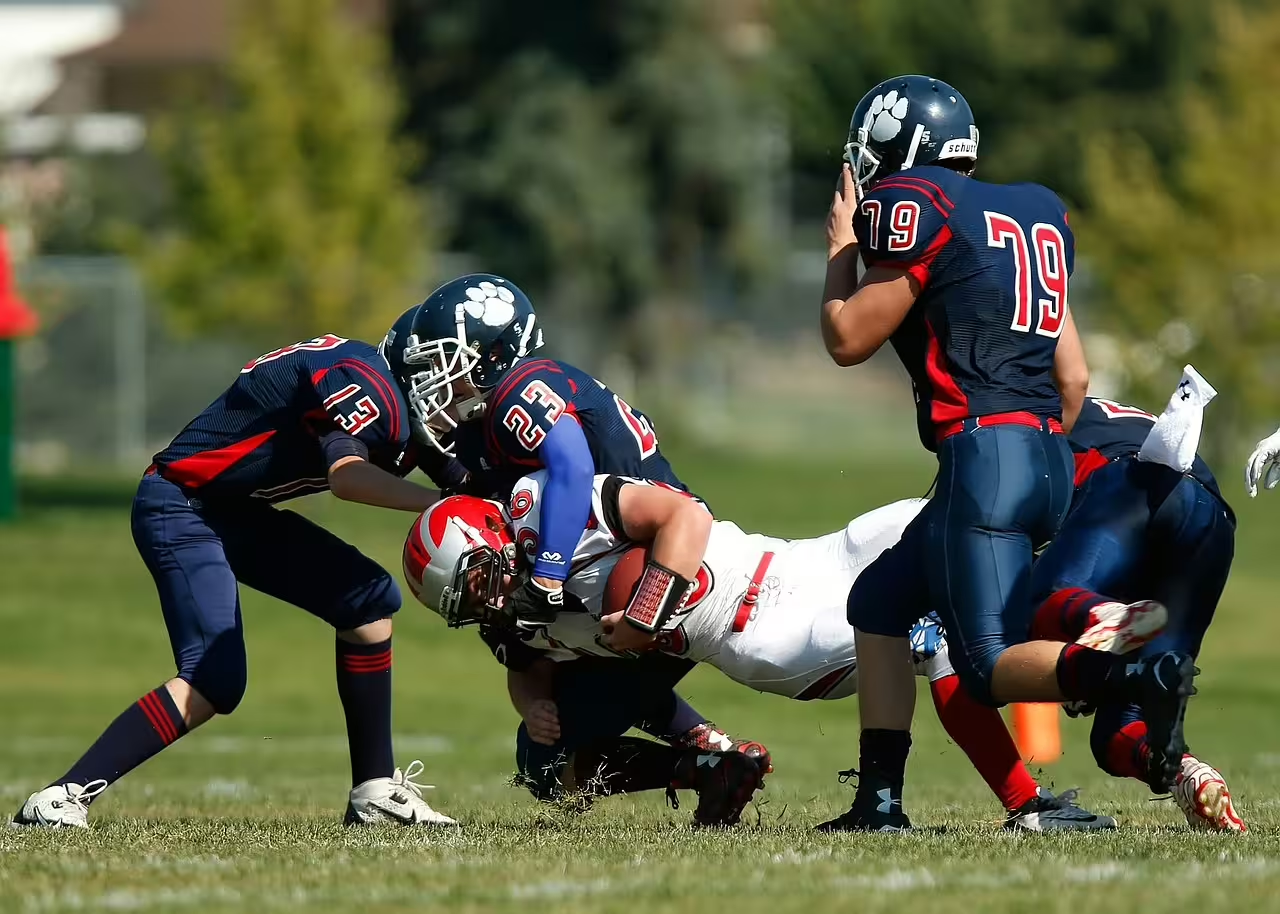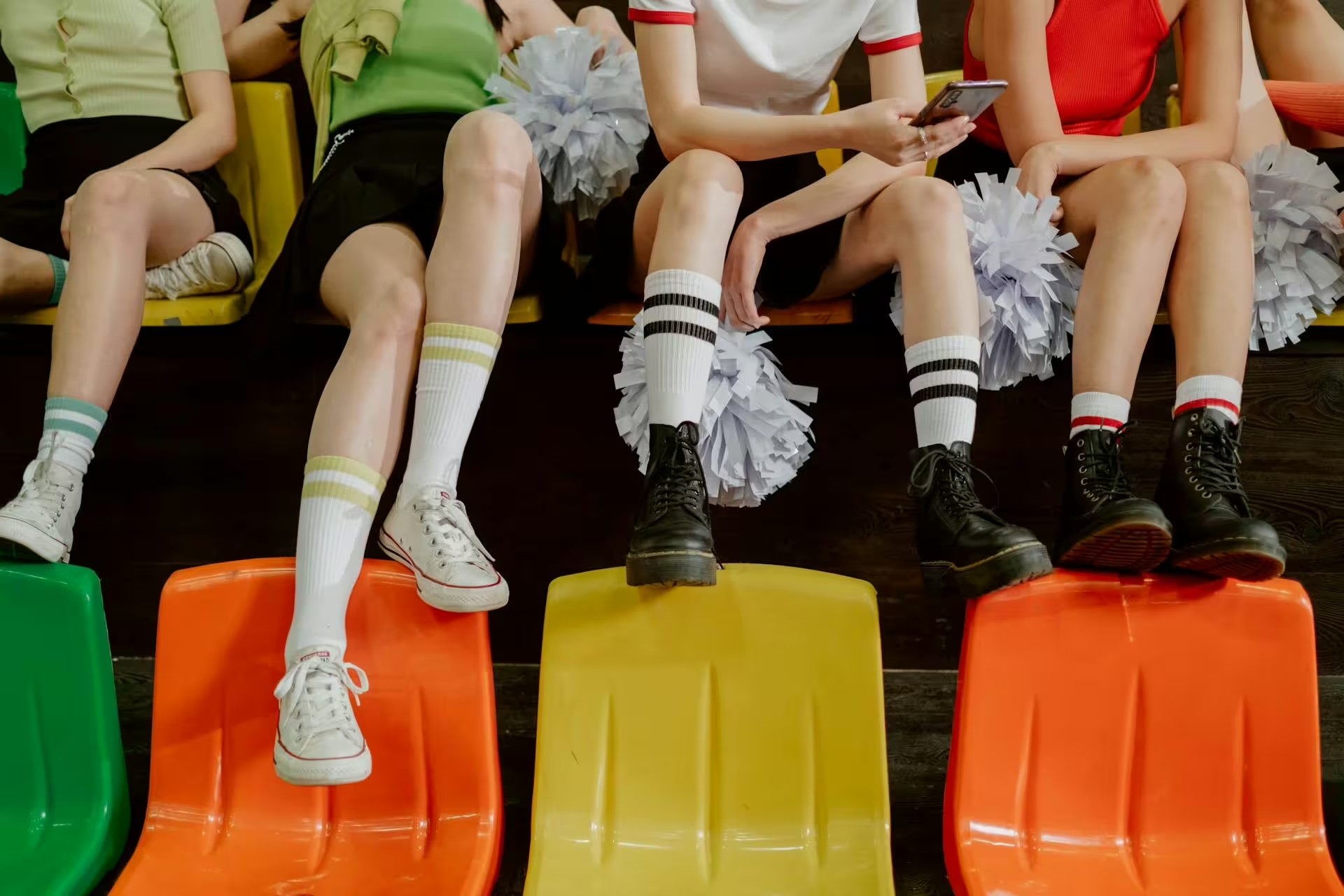We’ve all seen it before, our child is getting ready for the big game and they start to show the tell-tale signs of nerves. Maybe they are extra nervous or have expressed that they don’t want to practice or perform. Whatever the reasons behind it, sport anxiety is a very real issue, and it can strike a 17-year-old just as easily as it can a five-year-old.
First and foremost though, we want to allay any concerns that parents might have about the normalcy of such anxieties. These types of nerves are fairly commonplace and frankly, a little nervous energy might even be helpful. Then again, too much anxiety can be downright debilitating for a young athlete. These moments can transform an activity that should be a source of joy and growth into a sticky emotional morass of fear and mounting pressure.
In this article, we will discuss some of the most common catalysts for sports anxiety in kids. We will also talk about some of the ways that children and teens can use to cope with these fears, as well as some methodologies that parents can use to assist them in doing so.
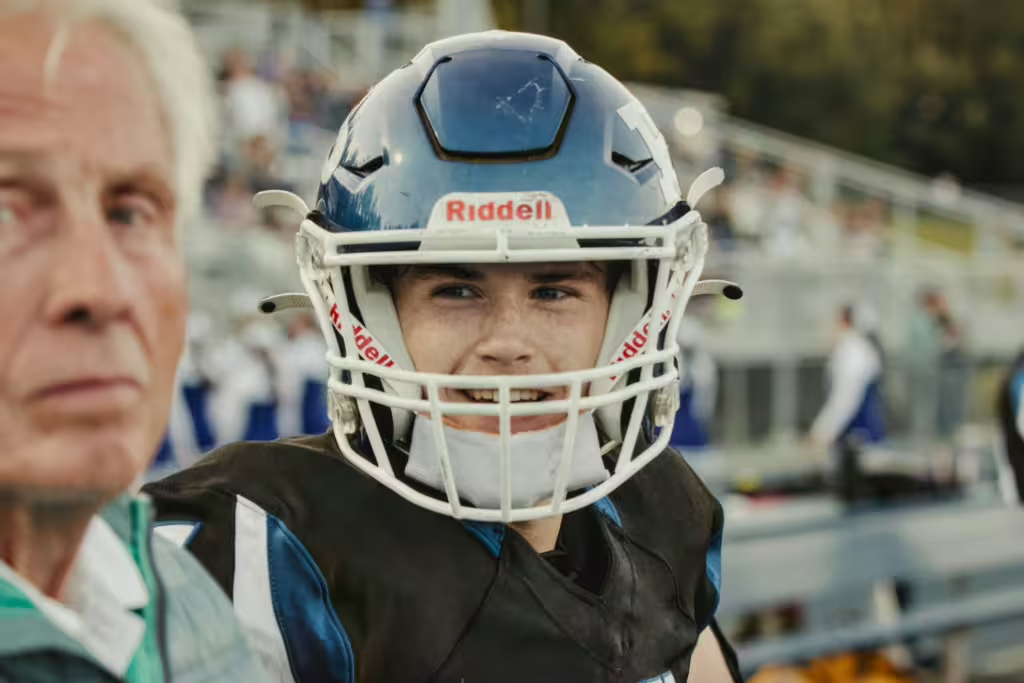
What is Sports Anxiety
When we talk about sports anxiety, what we are really referring to is performance anxiety. This type of emotional, sometimes physical reaction, isn’t mere stage fright, but something far more deep-seeded. In essence, this type of reaction represents a perfectly understandable, if sometimes extreme, response to pressure. Sports anxiety can occur before a big event, in the midst of a competition, or even in a random practice. Basically, any time expectations feel high, the pressure begins to mount.
It should be noted that most kids experience only mild nervousness in these moments, but that generally fades as the child starts playing. Those who are more affected may find themselves paralyzed by fear. Perhaps because they are worried about making mistakes, disappointing their coaches or parents, or losing face in front of teammates.
Common Symptoms
Some of the most common indicators of sports anxiety include:
- Stomach or headache before games
- Difficulty sleeping on the eve of competition
- Irritability, tearfulness, or unexpected mood swings. We say unexpected because kids and teens are capricious by nature.
- Refusal to attend practice or games
- Overthinking prior to the event or engaging in negative self-talk (“I’m going to mess up”)
- Physical symptoms like racing heart, sweaty palms, or even trembling
- Forgetting practiced skills or “freezing up” during play
Note that these symptoms often vary by age, experience, and from child to child. In all cases, though, these symptoms can feel like a raging storm within them that they simply cannot quell. Fear is a powerful motivator but it is almost always detrimental to confidence and good mental health.
What Creates Sports Anxiety
As one might imagine, our youthful years are full of pitfalls and tribulations that are essentially tailor-made to create anxiety. Throw in the added pressure of youth sports and well, you’ve got yourself an anxiety stew in the making!
Pressure to Perform
None of us mean to put undo pressure on our kids but unfortunately, even well-intentioned encouragement can come off as overly pressuring. Believe it or not, even a throwaway line about being a valued team member or discussing the seasonal standings, can see a child internalizing incessant, unhealthy messages like:
- “You need to win.”
- “Don’t let your team down.”
- “We’re counting on you.”
Perfectionism
By and large, children are not what we would consider “perfectionists,” but there are those who are engaged with technical sports like gymnastics, swimming, or figure skating, that wind up developing certain perfectionist tendencies. At some stage in their sports careers, these children learn to fear mistakes, even small ones. Meanwhile, overbearing coaches and expectant parents can enhance these perfectionist feelings, teaching the athlete to equate success only with flawless execution.
Fear of Failure or Embarrassment
Sports, in general, teaches children and teens how to cope with failure and become resilient, but these skills are not intrinsic. For the most part, all young athletes are embroiled in the process of learning how to bounce back and accept mistakes as a part of the learning process. Peer pressure and social pressure don’t help this, as fear of “looking bad” in front of their friends, coaches, and families often serves to fuel those anxious feelings; often more than the actual competitions themselves.
Social Pressure and Comparison
Middle and high school athletes are faced with more peer pressure and constant comparison with their fellow students and athletes. Social media doesn’t help this, nor does the fact that competition typically intensifies at these levels. sports intensifies. Kids who compare themselves with others, worry about social standing, or fear losing their friends wind up much more anxietal about their athletic escapades.
Transitional and Developmental Factors
Aging is hard; we all know that. Young kids lack the ability to regulate their emotions or understand the relative unimportance of competition, while hormonal teens have their own crosses to bear in terms of emotional regulation. Additionally, the shift from recreational play to competitive leagues can trigger anxiety, as can the simple act of changing teams.
Do’s and Don’ts for Parents
As you might expect from the relative tone of this article, we parents are well-positioned to help our children properly respond to life’s many stresses. Our reactions can soothe nerves, but just as easily, saying the wrong thing can heighten anxiety. The best ways to keep our kids focused and grounded is to stay calm, emphasize effort over outcome, and to support their emotions; come what may. Meanwhile, we ought to avoid comparing our children to others, outwardly criticism their mistakes, or focusing too much on success, wins, and future plans.
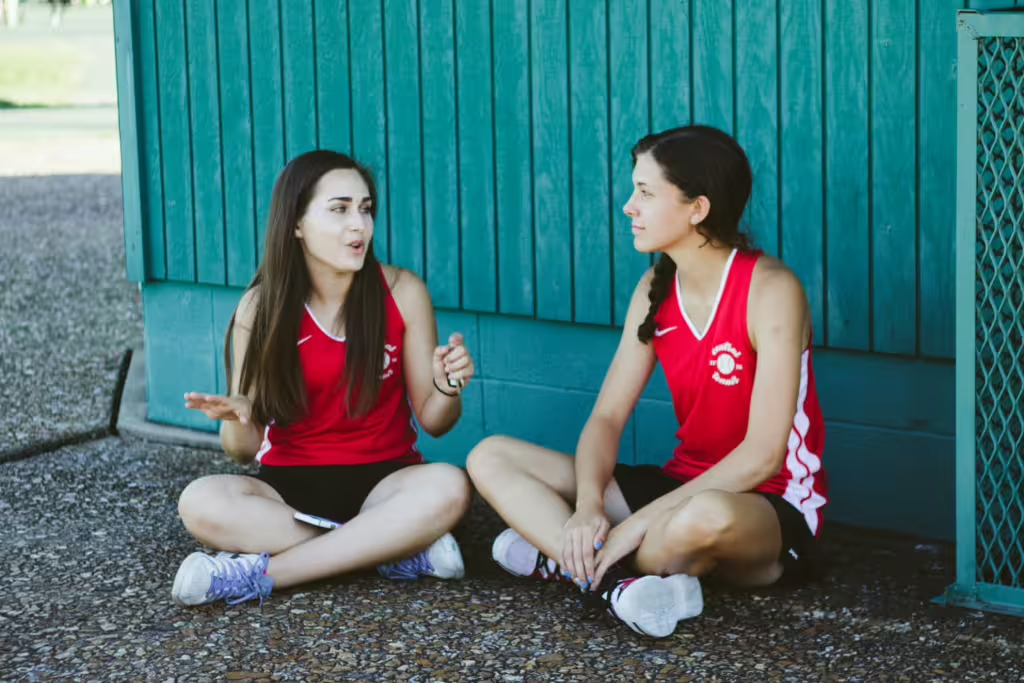
Strategies for Managing Sports Anxiety
Teach Relaxation Techniques
Some tried-and-true way to help kids get over their anxiety is to help them calm their bodies and minds through deep breathing exercises, guided visualizations, grounding techniques, and meditations. These methods should be practiced regularly so they become habit— not just before the worrisome event in question.
Create Pre-Game Routines
Speaking of pre-game exercises, parents should consider implementing some calming exercises or rituals to help kids chill out before a match. Perhaps they can physically warm up, listen to a song that gets them pumped, or engage in positive self-talk or affirmations. consistent routine before practice or games reduces uncertainty and signals readiness.
Reframe Mistakes and Keep Perspective
Remember to teach your children that mistakes and losses are part of the process. Tell them anecdotes about professional athletes who have been through it and remember to celebrate every success, not dwell on failure. It’s also important to keep perspective on the fact that sports are just one aspect of your child’s life; they are not the only thing that defines how smart, sociable, physically fit, or skilled they are as a person. And they certainly don’t define your child’s value.
Encourage Downtime
Physical and mental rest is vital for recovery, just as it is for maintaining a child’s healthy mental state. To ensure these breaks happen, parents should schedule breaks from training here and there. They should also encourage their children to engage with other hobbies and allow them time to spend with their friends away from the sports field.
When to Step Back
If you notice your child losing sleep, eating differently, or withdrawing from sports or other activities, it might be time for a break. It’s important to keep in mind that the healthiest choice for a child might be to step back. Remember, a break doesn’t mean quitting forever—it’s just a necessary chance for them to reset. You can use this stolen time to help them explore what they love about sports, rebuild their confidence, or try out some other, non-sports activities. If and when they’re ready to return, they will undoubtedly do so with a clearer sense of understanding and purpose.
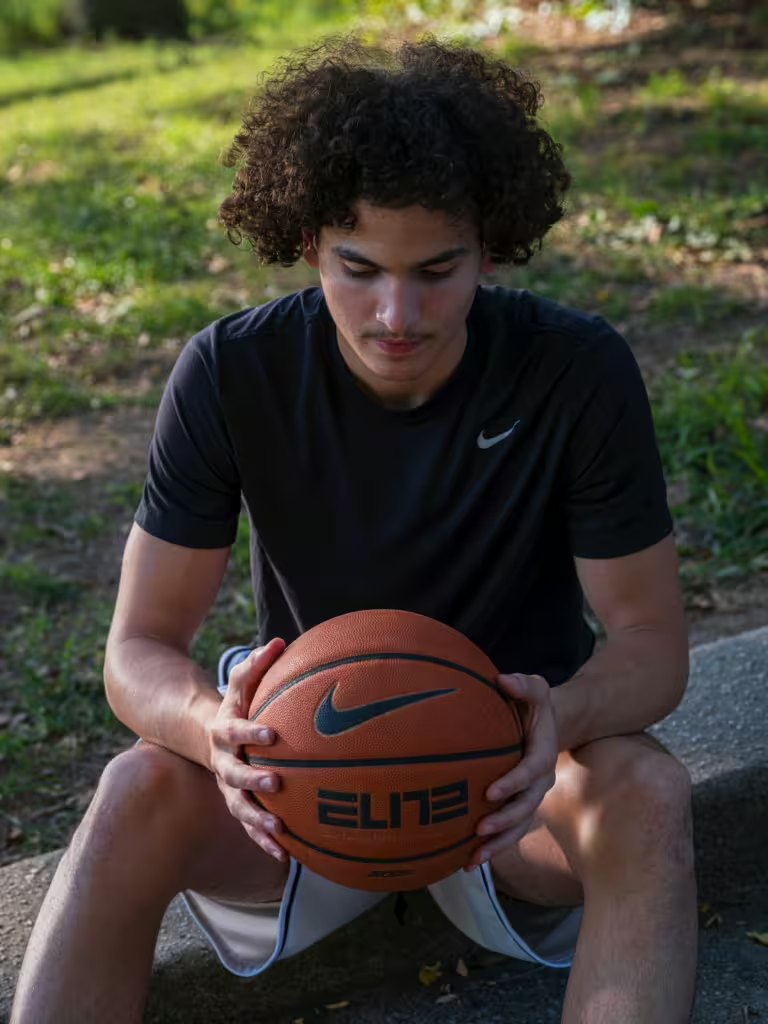
Cultured Athlete Says…
As you can see, sports anxieties are going to happen, but they are hardly the end of the world. In fact, helping your child to deal with those anxieties in the proper way will ensure that your child is better able to overcome anxieties they will undoubtedly face in other areas of their life, such academics, friendships, relationships, and their chosen future career.
It’s important to understand that nervousness does not equate to weakness, it is a signal that your child cares about their sports journey. The right mix of empathy, patience, and proper coping mechanisms will help them to understand this themselves and to learn that such challenges can be overcome. As parents, we are well-placed to help our kids take a breath, re-assess their situation, and re-affirm their confidence in ways that will help them to succeed.
Discover more from CulturedAthlete
Subscribe to get the latest posts sent to your email.




